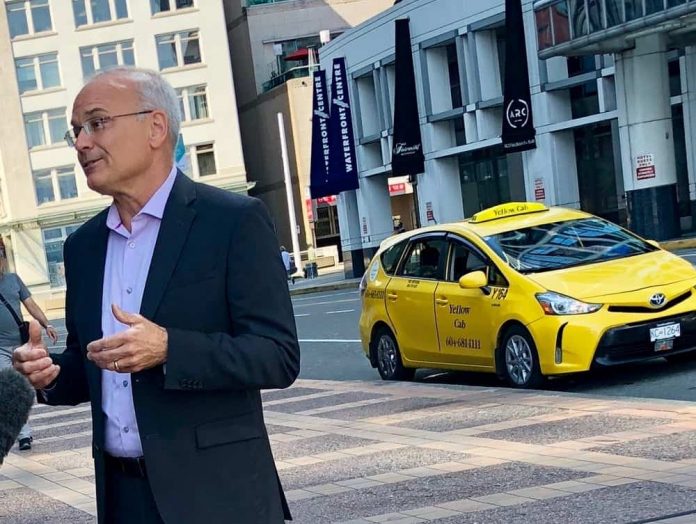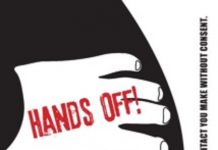
Photo by Sukhwant Singh Dhillon
MADD Canada, BarWatch and Coquitlam Mayor Richard Stewart on Tuesday called on the provincial government to get ridesharing on the road in 2018 to increase safety in British Columbian cities.
“Ridesharing is a key tool for improving safety by reducing impaired driving and helping to clear out entertainment districts after bars close,” said Tracy Crawford, MADD Canada Regional Director for British Columbia and Yukon. “Further delays cannot be justified. Ridesharing legislation should be implemented this fall and not delayed another year. With the legalization of cannabis taking place this fall, more than ever British Columbians need a ridesharing option.”
“Providing more options for British Columbians to get to and from areas like Vancouver’s Granville Street will help improve safety on our streets,” said Curtis Robinson, Chair of BarWatch. “It creates a lot of unnecessary tension when you have large numbers of people who have been drinking stuck in one area, unable to get home. Bringing ridesharing to B.C. will help get people home safely, faster.”
“Metro Vancouver has a serious safety issue,” said Coquitlam Mayor Richard Stewart. “The existing supply-managed taxi monopoly doesn’t work during times of peak demand, when impaired driving is a serious concern, along with other public safety challenges. Simply adding a few more taxis will not solve the problem. We need a system without supply caps and boundaries to ensure that the suburbs and all of Vancouver gets the service it needs. Ridesharing would address that.”
Transportation Minister Claire Trevena announced on July 19 that legislation for ridesharing would be introduced in fall of 2018, but applications would wait until fall of 2019. The BC Government had previously promised ridesharing would be available for consumers by the end of 2017, and then subsequently promised that by the end of 2018.
Most impaired driving incidents happen at night and during the weekend. Research by the American Public Transportation Association found that the busiest time for ridesharing is not the first thing in the morning or at the end of the day when people are getting to and from work, but late at night when bars close.
There is a growing body of research on ridesharing’s impact on impaired driving. Researchers at Temple University compared rates of alcohol-related crash deaths in cities before and after Uber was available. While there are a number of factors that affect impaired driving trends, findings from this research conclude that the arrival of Uber in a city led to a 3.6%-5.6% decrease in the number of people killed in alcohol-related car crashes.
A representative of the Vancouver Police Department testified before the all-party committee on ridesharing that the discussion with another police department in Alberta indicated that ridesharing had significantly assisted in clearing out the streets in their downtown entertainment districts, and getting people home to all parts of the city.














